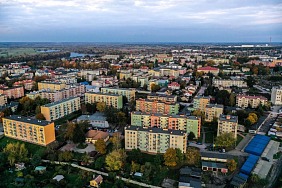As the world continues to grapple with the effects of the coronavirus pandemic, many companies are embracing remote work to ensure business continuity. Setting up a remote work hub in Europe is an excellent strategy for businesses to reap the benefits of remote work, such as increased productivity, greater flexibility, and access to a diverse talent pool. However, there are a few things to consider when setting up a remote work hub in Europe.
Finding Remote Job Opportunities
Finding remote job opportunities in Europe is the first step in setting up your remote work hub. Many companies are now offering remote or hybrid roles, and there are a number of websites dedicated to helping employers find suitable candidates in Europe. It’s important to do your research and ensure that any potential hires have the necessary skills and experience. You may also want to consider using online recruitment platforms, such as LinkedIn, to find remote workers in Europe.
Another option is to use remote job boards. These are websites that list remote job postings and are a great way to find qualified candidates. Many of these job boards are tailored to specific countries or regions, making it easier to find remote job opportunities in Europe.
Productivity
Once you’ve found suitable remote workers in Europe, you’ll need to ensure that they are productive and have the necessary tools and resources to do their job. It’s important to provide clear expectations and guidelines for remote workers, and establish regular check-ins to ensure progress is being made. Additionally, it’s important to provide remote workers with the right technology and resources to enable them to work effectively. This could include providing access to communication tools, such as Slack or Zoom, and ensuring they have access to the right hardware, such as laptops or desktops.
Communication
Communication is key to any successful remote work setup. It’s important to ensure that remote workers have access to the right communication tools, such as email, instant messaging, and video conferencing. Additionally, you should establish clear guidelines for communication, such as response times and expectations for communication. It’s also important to provide remote workers with the necessary training and resources to ensure they are able to communicate effectively.
Legal Considerations
When setting up a remote work hub in Europe, it’s important to consider the legal implications. This includes ensuring that any remote workers are compliant with local labor laws, that they are paying the correct taxes, and that their work is covered by the appropriate insurance. Additionally, it’s important to ensure that any remote workers are aware of their rights and responsibilities, and that they are provided with the necessary resources and support.
Career Development Opportunities
Finally, it’s important to provide remote workers with the opportunity to develop their skills and advance their careers. This includes providing access to training programs, mentoring opportunities, and other resources to help remote workers develop their skills. Additionally, it’s important to provide remote workers with the necessary support and resources to help them progress in their careers.
Setting up a remote work hub in Europe is an excellent strategy for businesses to reap the benefits of remote work. However, there are a few things to consider when setting up a remote work hub in Europe. Finding remote job opportunities, ensuring productivity, improving communication, taking legal considerations into account, and providing career development opportunities are all key elements of setting up a successful remote work hub in Europe.














